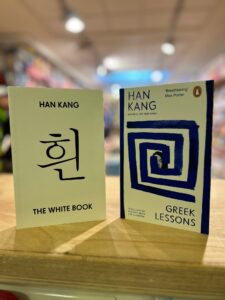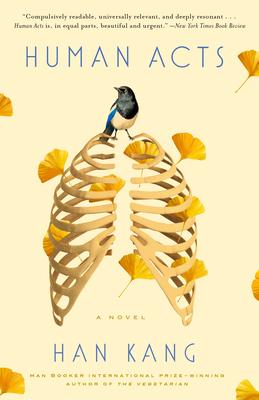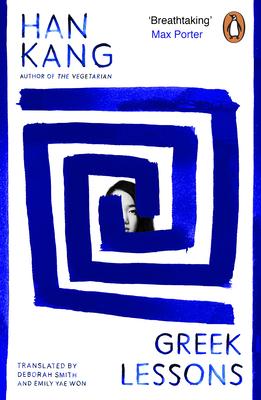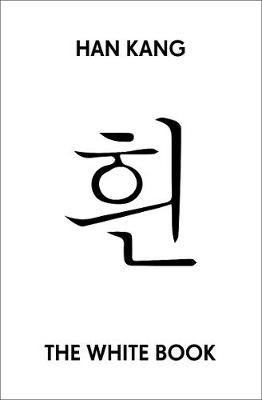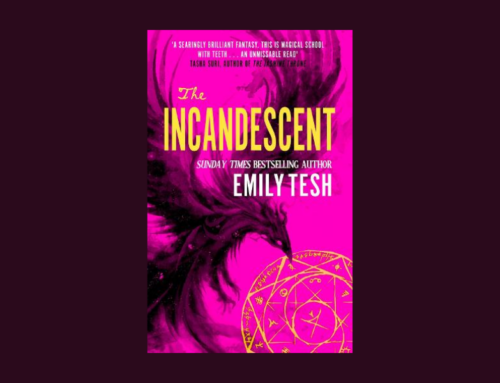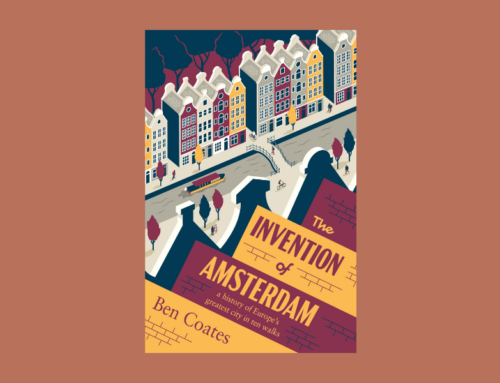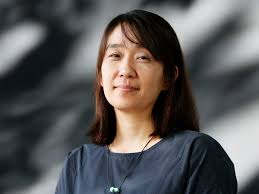 Congratulations to Han Kang, who is this year’s Nobel Prize laureate for the Literature category!
Congratulations to Han Kang, who is this year’s Nobel Prize laureate for the Literature category!
We all probably know her from her International Booker Prize winning The Vegetarian, and thankfully since then quite a few of her other works have been translated into English as well.
The Nobel Prize jury lauded Han “for her intense poetic prose that confronts historical traumas and exposes the fragility of human life”. We hope this honor will introduce her beautiful books to many more readers!
Before the nightmares began, Yeong-hye and her husband lived an ordinary, controlled life. But the dreams–invasive images of blood and brutality–torture her, driving Yeong-hye to purge her mind and renounce eating meat altogether. It’s a small act of independence, but it interrupts her marriage and sets into motion an increasingly grotesque chain of events at home. As her husband, her brother-in-law and sister each fight to reassert their control, Yeong-hye obsessively defends the choice that’s become sacred to her. Soon their attempts turn desperate, subjecting first her mind, and then her body, to ever more intrusive and perverse violations, sending Yeong-hye spiraling into a dangerous, bizarre estrangement, not only from those closest to her, but also from herself.
In the midst of a violent student uprising in South Korea, a young boy named Dong-ho is shockingly killed.
The story of this tragic episode unfolds in a sequence of interconnected chapters as the victims and the bereaved encounter suppression, denial, and the echoing agony of the massacre. From Dong-ho’s best friend who meets his own fateful end; to an editor struggling against censorship; to a prisoner and a factory worker, each suffering from traumatic memories; and to Dong-ho’s own grief-stricken mother; and through their collective heartbreak and acts of hope is the tale of a brutalized people in search of a voice.
In a classroom in Seoul, a young woman watches her Greek language teacher at the blackboard. She tries to speak but has lost her voice. Her teacher finds himself drawn to the silent woman, for day by day he is losing his sight.
Soon they discover a deeper pain binds them. For her, in the space of just a few months, she has lost both her mother and the custody battle for her nine-year-old son. For him, it’s the pain of growing up between Korea and Germany, being torn between two cultures and languages.
Greek Lessons is a tender love letter to human connection, a novel to awaken the senses, vividly conjuring the essence of what it means to be alive.
Translated by Deborah Smith and Emily Yae Won.
While on a writer’s residency, a nameless narrator wanders the twin white worlds of the blank page and snowy Warsaw. THE WHITE BOOK becomes a meditation on the color white, as well as a fictional journey inspired by an older sister who died in her mother’s arms, a few hours old. The narrator grapples with the tragedy that has haunted her family, an event she colors in stark white–breast milk, swaddling bands, the baby’s rice cake-colored skin–and, from here, visits all that glows in her memory: from a white dog to sugar cubes.
As the writer reckons with the enormity of her sister’s death, Han Kang’s trademark frank and chilling prose is softened by retrospection, introspection, and a deep sense of resilience and love. THE WHITE BOOK–ultimately a letter from Kang to her sister–offers powerful philosophy and personal psychology on the tenacity and fragility of the human spirit, and our attempts to graft new life from the ashes of destruction.

